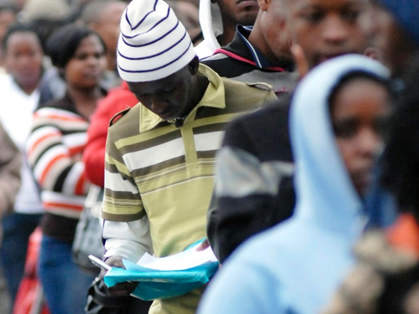Report shows 1.5 million young Ghanaians between 15 and 24 years not in school, not employed
 A report by the Ghana Statistical Service (GSS) says one in every four, representing 24.2 per cent of young persons between 15 and 24 years were not engaged in education, employment, or training during the third quarter of 2022.
A report by the Ghana Statistical Service (GSS) says one in every four, representing 24.2 per cent of young persons between 15 and 24 years were not engaged in education, employment, or training during the third quarter of 2022.
The figure represents 1.5 million persons in the age group.
This is in a statement from the Service from the Annual Household Income and Expenditure Survey 2022 Third Quarter Labour Statistics Report issued to the Ghana News Agency.
“More than half of the youth NEET are in the Greater Accra (312,394), Ashanti (300,161), Eastern (131,341), and Central (129,182) regions.
” In 13 out of the 16 regions, more than 20 percent of young persons, 15 to 24 years were not in education, employment, or training.
“Eastern Region (30.0 per cent) has the highest proportion of youth, with a figure about twice that of Bono Region (14.5 per cent) which has the lowest proportion,” the report said.
The 2021 Population and Housing Census indicated that one in every ten (11.1per cent) persons 15 to 24 years, representing 1.4 million young persons, never attended school.
A slighter higher percentage of females (12.0 per cent) in the age group never attended school compared to males (10.2 per cent).
In the Savannah (43.4 per cent), North East (36.8per cent), Northern (33.3 per cent), Upper West (20.9 per cent) and Oti (20.7 per cent). ,
The report said in all, the five regions accounted for almost half (665,508) of the young persons that never attended school.
The unemployment rate for young persons 15 to 24 years recorded during the census was 32.8 per cent with a higher rate for females (36.7 per cent) compared to males (29.3%).
The unemployment rate for the age group was above 30 percent in 12 out of the 16 regions led by the Upper West Region (39.0 per cent) and followed by Western North (38.4 per cent).
The statement is in commemoration of this year’s World Youth Skills Day, which is celebrated annually on 15th July to mark the strategic importance of equipping young people with skills for employment, decent work, and entrepreneurship.
The theme for 2023 is: “skilling teachers, trainers, and youth for a transformative future.”
Source: GNA
